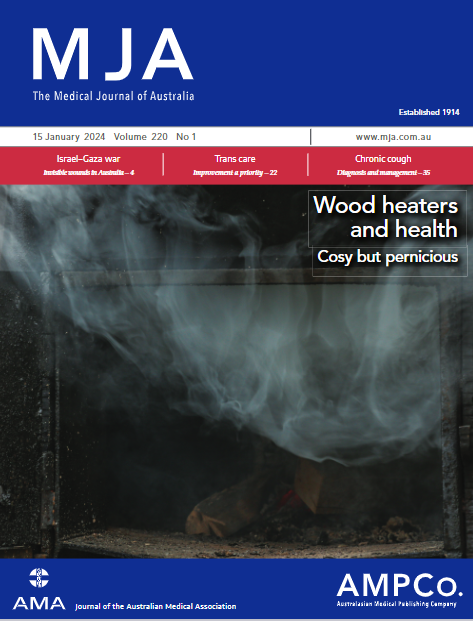Improving cardiometabolic risk factors in Aboriginal and Torres Strait Islander people in northeast Arnhem Land: single arm trial of a co-designed dietary and lifestyle program
Abstract
Objective
To evaluate the impact of a 4-month dietary and lifestyle program co-designed and led by Aboriginal and Torres Strait Islander people on weight and metabolic markers, diet, and physical activity in overweight and obese adults in a remote Indigenous community.
Study design
Single arm, pre–post intervention study.
Setting, participants
Adult residents (18–65 years) of a remote Northern Territory community with body mass index (BMI) values of at least 25 kg/m2 or waist circumferences exceeding 94 cm (men) or 80 cm (women).
Intervention
Hope for Health, a culturally sensitive 4-month program supporting self-managed health improvement based on dietary and lifestyle change, 1 August to 30 November 2022.
Main outcome measures
Weight loss of at least 5%; changes in BMI, waist circumference, other metabolic markers (blood pressure, biomarkers of metabolic health and inflammation), diet, and physical activity; participant perceptions of the program.
Results
We assessed outcomes for 55 participants who completed weight assessments at both baseline and program end (mean age, 42.5 years [standard deviation, 10.1 years]; 36 women [65%]). Forty participants lost and 15 gained weight; overall mean weight loss was 1.5 kg (95% confidence interval [CI], 0.5–2.4 kg), and ten participants (18%; 95% CI, 9–31%) achieved at least 5% weight reduction. The mean change in BMI (53 participants) was –0.60 kg/m2 (95% CI, –0.93 to –0.27 kg/m2), in waist circumference (53 participants) –3.2 cm (95% CI, –4.7 to –1.7 cm), and in low-density lipoprotein cholesterol level (37 participants) –0.28 mmol/L (95% CI, –0.47 to –0.08 mmol/L); the relative decline in the HbA1c level geometric mean (50 participants) was 11% (95% CI, 6–15%). The intake of breads and cereals (median change, –1.5 [95% CI, –2.0 to –1.0] serves/day) and sugar-sweetened beverages (–0.6 [95% CI, –1.4 to –0.1] serves/day) declined; the amount of moderate and vigorous physical activity increased by a median of 103 min/day (95% CI, 74–136 min/day; 19 participants). The program focus on integrating healthy bodies and networks of kin, healthy governance, vibrant language and ceremony, and a healthy environment were seen as central to its value and benefit.
Conclusions
Community appreciation of the program and the improvements in cardiometabolic risk factors are encouraging, providing an example of a culturally sensitive, co-designed initiative led by Indigenous people for reducing the prevalence of chronic disease in remote areas.
Trial registration
Australian New Zealand Clinical Trials Registry (ACTRN12622000174785; prospective: 2 February 2022).


 求助内容:
求助内容: 应助结果提醒方式:
应助结果提醒方式:


